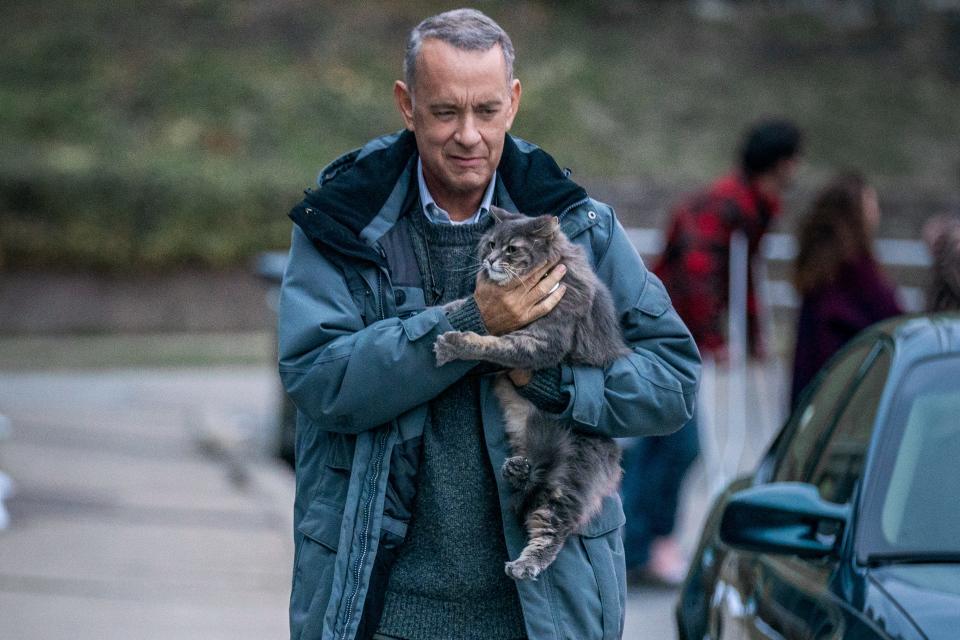The importance of neighbors, and people like Otto
- Oops!Something went wrong.Please try again later.
- Oops!Something went wrong.Please try again later.
We went to the movies again.
Settled into the same seats, E3 and E4, aisle seats on the first row of the upper section.
We shared our popcorn and Diet Coke, and sat back to watch the new Tom Hanks’ movie, "A Man Called Otto." We already had seen the earlier Swiss version with English subtitles on Amazon Prime, "A Man Called Ove."

"Otto" is the Americanized, English language version. Both are terrific.
But when I looked at Tom Hanks, I had difficulty not imagining Otto as a castaway, an engineer on Polar Express or any number of other characters.
Both films are based on a book by the Swedish author, Fredrik Backman that was published in 2012. The English translation followed in 2013 and it immediately hit the New York Times Best Seller list. The Swiss movie followed in 2015. Two weeks ago, the Tom Hanks version was released.
Backman claims to have been inspired by an article he read about a man named Ove who became unhinged at an art museum over difficulties purchasing tickets. Backman identified with the man’s frustrations and started writing blogs about his own pet peeves under the title, “I Am A Man Called Ove.”
Over time, the pet peeves took a leap to another level and the story was born. In the movie, Otto moves beyond frustration and anger to understanding, acceptance and love in an aging and diverse neighborhood. "A Man Calle Otto" shares similar themes with Clint Eastwood’s 2008 movie "Gran Torino."
We all have pet peeves.
We all are annoyed at times by the behavior of others, by rules and regulations that make little sense. We all feel pulled toward inwardness, the temptation to be consumed by our own concerns, oblivious of others and their struggles. In our old age, many face the challenges of living alone in an increasing generational disconnect.
We all have prejudices.
Ultimately we all need one another. Even the wealthy and famous can succumb to the ravages of isolation and loneliness. Real relationships always are close up, face-to-face, with those whom we share daily life.
I was reminded of Otto in our recent Colorado snowstorms. I woke to the sound of a shovel scraping on concrete and ice. When I went outside, my neighbor was shoveling our drive. I grabbed my shovel and joined him. A widow lives on the other side of him. I asked if he had shoveled her drive and walk yet. He said no, so, we shoveled together, and then, moved on the house beyond hers, a retired couple who moved to our neighborhood a year ago.
A few days later, our neighbor from across the street crunched her way across the ice with her 10-month-old baby on her hip to deliver fresh muffins she had baked for the neighborhood. We are grateful for the neighbors, young and old, who choose to share life with us.
I am always glad to see a movie that captures the essence of Jesus’ teaching about how we should live. Personal relationships sometimes appear complicated and confusing, but Jesus boiled all the complications down for us into very simple term: “Love your neighbor as yourself,” (Mark 12:31).
“In everything therefore treat people the same way you want them to treat you, for this is the Law and the Prophets,” (Matthew 7:12).
Bill Tinsley reflects on current events and life experience from a faith perspective. His books are available at www.tinsleycenter.com. Email bill@tinsleycenter.com.
This article originally appeared on Abilene Reporter-News: The importance of neighbors, and people like Otto

